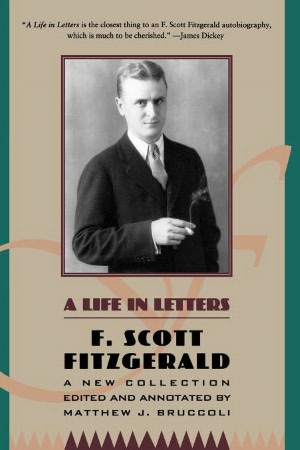Brain Pickings Weekly
"Nothing any good isn’t hard."
 What is the secret of great
writing? For David Foster Wallace, it was about fun.
For Henry Miller, about discovery.
Susan Sontag saw it as self-exploration.
Many literary greats anchored it to their daily routines.
And yet, the answer remains elusive and ever-changing.
What is the secret of great
writing? For David Foster Wallace, it was about fun.
For Henry Miller, about discovery.
Susan Sontag saw it as self-exploration.
Many literary greats anchored it to their daily routines.
And yet, the answer remains elusive and ever-changing.
In the fall of 1938, Radcliffe
College sophomore Frances Turnbull sent her latest short story to family friend
F. Scott Fitzgerald.
His response, found in F. Scott Fitzgerald: A
Life in Letters (UK; public library) – the
same volume that gave us Fitzgerald's heartwarming
fatherly advice and his brilliantly
acerbic response to hate mail – echoes Anaïs Nin's insistence upon the importance
of emotional investment in writing and offers some uncompromisingly
honest advice on essence of great writing:
I've read the story carefully and, Frances, I'm afraid the price
for doing professional work is a good deal higher than you are prepared to pay
at present. You've got to sell your heart, your strongest reactions, not the
little minor things that only touch you lightly, the little experiences that
you might tell at dinner. This is especially true when you begin to write, when
you have not yet developed the tricks of interesting people on paper, when you
have none of the technique which it takes time to learn. When, in short, you
have only your emotions to sell.
This is the experience of all writers. It was necessary for
Dickens to put into Oliver Twist the child's passionate resentment at being
abused and starved that had haunted his whole childhood. Ernest Hemingway's
first stories 'In Our Time' went right down to the bottom of all that he had
ever felt and known. In 'This Side of Paradise' I wrote about a love affair
that was still bleeding as fresh as the skin wound on a haemophile.
The amateur, seeing how the professional having learned all that
he'll ever learn about writing can take a trivial thing such as the most
superficial reactions of three uncharacterized girls and make it witty and
charming – the amateur thinks he or she can do the same. But the amateur can
only realize his ability to transfer his emotions to another person by some
such desperate and radical expedient as tearing your first tragic love story
out of your heart and putting it on pages for people to see.
That, anyhow, is the price of admission. Whether you are prepared
to pay it or, whether it coincides or conflicts with your attitude on what is
'nice' is something for you to decide. But literature, even light literature,
will accept nothing less from the neophyte. It is one of those professions that
wants the 'works.' You wouldn't be interested in a soldier who was only a
little brave.
In the light of this, it doesn't seem worth while to analyze why
this story isn't saleable but I am too fond of you to kid you along about it,
as one tends to do at my age. If you ever decide to tell your stories, no one
would be more interested than,
Your old friend,
F. Scott Fitzgerald
P.S. I might say that the writing is smooth and agreeable and some of
the pages very apt and charming. You have talent – which is the equivalent of a
soldier having the right physical qualifications for entering West Point.More
No comments:
Post a Comment